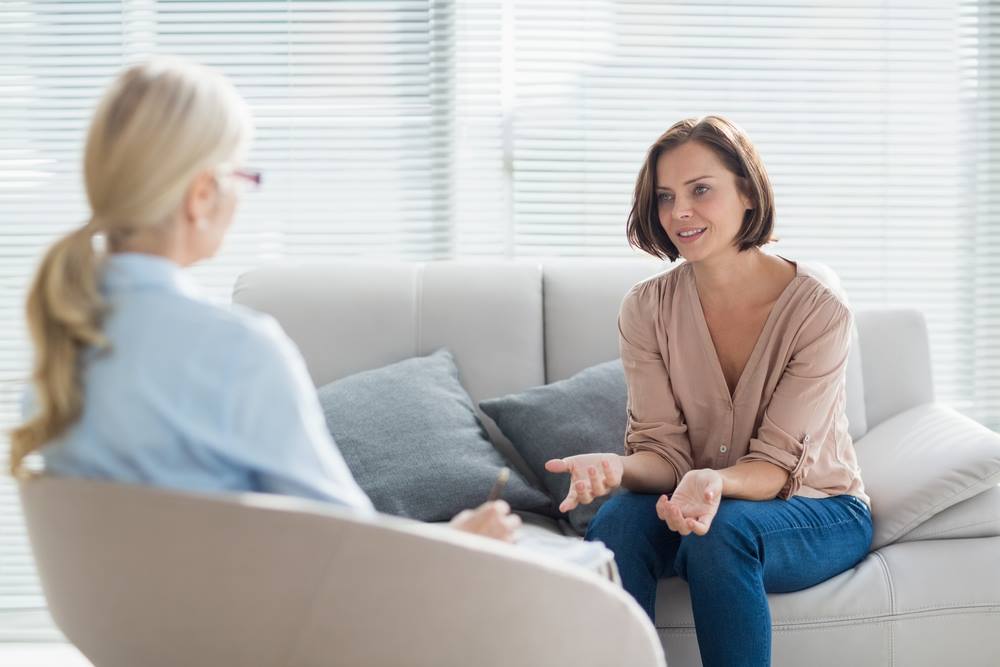There is something special about being in a group setting and being represented, seeing yourself in others, by seeing people like you –making it often easier to relate in this way to the difficult experiences you may have shared. For women, that refuge exists in women-only gatherings. That is because women’s groups have the power to boost confidence, create comradeship, allow them to be seen and heard, and help women develop a voice to be better understood and create change. As Annie Lennox said “When women get together as a group, it is immensely powerful. ” This shared sense of self can be found in group therapy.

Influence
Before the mid-1970s, it was discovered that men had a higher rate of recovery than women even though the physiological changes were similar. Several hypotheses were made as to why there was a disparity, including that women were less responsive to doing the work. During trial-and-error in alcohol recovery, sociologist Jean Kirkpatrick concluded that one type of recovery program could not apply to everyone–especially to women because traditionally, 12-step AA programs were designed and led by men. Women who often had families including children at home could not always attend meetings as easily as men.
In 1974 Kirkpatrick took it upon herself to develop a recovery program for women that focused on improving self-esteem, confronting the emotional needs of women, changing worldview, and overcoming feelings of guilt about the addiction as opposed to AA programs that focus on people’s powerlessness. Her program also incorporated spirituality, meditation, and a much-loved pen pal writing system. The success of the group has since then inspired many types of women’s groups that focus on approaching healing through positive thinking and affirmations.
Benefits of Women’s Groups
Women’s groups are powerful. They help women feel less lonely, stay motivated, be empowered, stay accountable, and nurture self-awareness. In them, women can learn new coping skills, understand patterns, and discover ways to relate to others. Most are tailored to address a specific issue such as substance abuse or mental illness, with the overlapping theme of womanhood, in a safe environment where women can be honest in disclosing their truth. The following are a few of the groups’ topics of interest.
Balance
Many women express struggling to balance their home, work, and social life seamlessly. A women’s group is a great place to discuss the frustrations tied to the pressure of performing well in all aspects of life. Women can find peace in knowing that they are not alone in their feelings of disappointment. Together as a group, women can be reassured and can find solutions to each other’s problems.
Motherhood
Parenting is a huge responsibility that can take a toll on people. Women may discuss postpartum depression, breastfeeding, unpaid labor, attachment bonding, childcare, school, special needs, and burnout.
Work
Although women have gained upward mobility in recent decades, they still make less than men and are offered fewer opportunities than men. This leaves women (especially women of color) compelled to work hard to get recognized, which can contribute to stress. In a group setting, women can unload about conflict, discrimination, and sexual harassment experienced in the workplace.
Gender Expectations
Even in more progressive times, gender role expectations exist. Some women feel constrained to behave and look a certain way and to achieve milestones like marriage and having children. In a group, women can develop a healthy body image by accepting themselves; and a healthy sense of their role choices. In particular, groups for woman can help women in the areas of their physical look, stage in life (like menopause), fertility or infertility, and sexuality.
To learn more about mental health treatment in Los Angeles, call Trauma and Beyond Center ® at (818) 651-0725.

